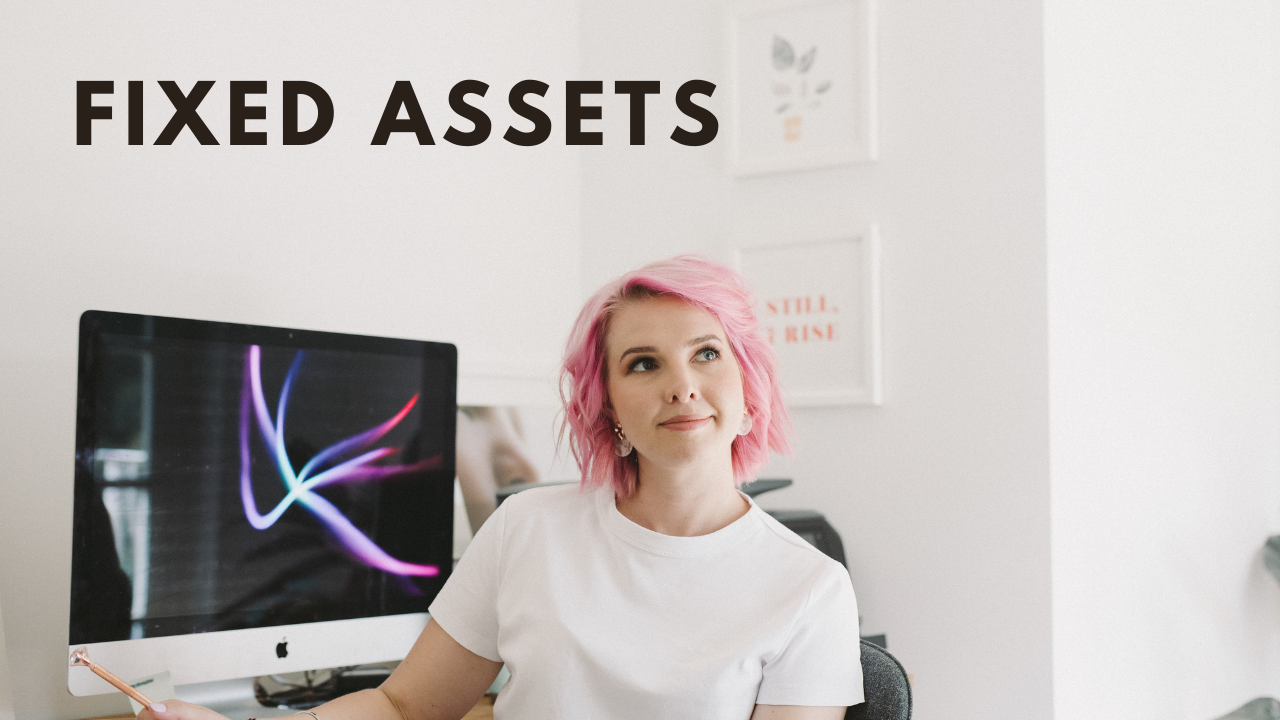Fixed Assets

What is a Fixed Asset Register?
It’s all in the name… a Fixed Asset Register is a list of fixed assets that are owned by a business. It is used to keep track of assets, their book value, purchase date and to calculate their depreciation. In most cases, you can find your Fixed Asset Register in your accounting software. If you don’t use accounting software, an Excel spreadsheet is also a great way to keep track. Any business who has purchased a Fixed Asset should have one and keep it updated at least each year end. You can think of it like an ‘inventory’ showing the business all the assets that they own and how much they are worth, at a point in time.
Hot tip: you can also do a fixed asset register to keep track of your personal assets, like cash balances, cars, property etc. This is super useful in preparation for your will (see our other blogs).
Common Terms
What is a Fixed Asset?
A Fixed Asset is also commonly known as Plant, Property and Equipment (PP&E) and is used to generate income and not easily converted into cash.
New assets should be added to your Fixed Asset Register on the day that they are purchased and put to use. For example, if you go to Harvey Norman to buy a brand new laptop, purchase it and bring it home and start using it on the 16th of August 2019, then that is the day you would enter the asset into your Fixed Asset Register.
Case Study: Buying Photography equipment on order
You have purchased a brand new camera for $6,000 on 21st June 2020. You paid for the camera in full, however the item is on backorder and the store expects that you will receive it on the 17th August 2020. The date that you will enter the camera to your asset register is the 17th of August 2020, not the 21st of June 2020. You add assets when they are put to use and the benefits of the asset begin to be utilised.
What is the cost of a depreciable asset?
The total cost of a depreciable asset includes its purchase price (excluding GST) and any costs incurred directly in purchasing the asset (i.e. insurance, shipping and handling costs, freight) and getting it ready for use.
What is depreciation?
This is a way of expensing, or deducting, for the use of the asset that period. Read more about it in this blog.
What is Accumulated Depreciation?
Accumulated depreciation is the total amount of depreciation claimed since the asset was purchased. For example, if you have claimed $5,000 in depreciation since you bought your camera 3 years ago, then your accumulated depreciation is $5,000.
Your Balance Sheet report will show the original cost, the accumulated depreciation, and then the net of these so that the remaining value of the asset is equal to the written down value.
What is Written Down Value?
Written Down value is the value of the asset once you take into account its accumulated depreciation. If you purchased a laptop for $5,000 and you have accumulated depreciation of $2,000, the written down value of the laptop is $3,000 ($5,000 - $2,000).
Where does the depreciation amount go?
Depreciation is an expense account, which sits on your Profit and Loss and helps to decrease your taxable income. If you use an accounting software, like Xero, your Fixed Asset Register (with a few clicks from you of course!) will calculate and post depreciation for you - no nasty manual journals that could be fraught with human error!
How does GST affect my Fixed Asset Register?
If you are registered for GST, the cost of the asset that you enter into your Fixed Asset Register needs to be exclusive of GST. If you’re not registered for GST, then you will enter the entire purchase cost of the asset into your Register.
I have sold an asset, what do I need to do to reflect that in my books?
Selling an asset will remove it from your balance sheet, because you no longer own it. If you use accounting software, it will do most of the heavy lifting for you and makes this process super easy. Your software will know how much your asset had depreciated since its purchase, and will calculate the profit you made from selling it (if you sold it for more money than it was worth on your balance sheet). As always, ask your accountant before playing around with your accounting software - they’ll know exactly what to do.
What impact does my Fixed Asset register have on my balance sheet?
Your Fixed Asset Register and Balance Sheet work (or should!) together hand in hand. Your accountant performs a Fixed Asset Reconciliation at EOFY to make sure that your Fixed Asset Register total equals your Balance Sheet. As your Fixed Asset Register helps to calculate your depreciation, it is super important that it matches your Balance Sheet.
As your asset depreciates, the total assets will decrease. Below is a table demonstrating how your balance sheet is affected by accumulated depreciation:
|
Year 1 |
||
|
Asset Cost |
Accumulated Depreciation |
Net Asset |
|
$50,000 |
$10,000 |
$40,000 |
|
Year 2 |
||
|
Asset Cost |
Accumulated Depreciation |
Net Asset |
|
$50,000 |
$20,000 |
$30,000 |
As you can see, by the end of Year 2, your asset has gone from being worth $50,000 at purchase, to $30,000 once depreciation has been taken into account.
Xxx Lauren


